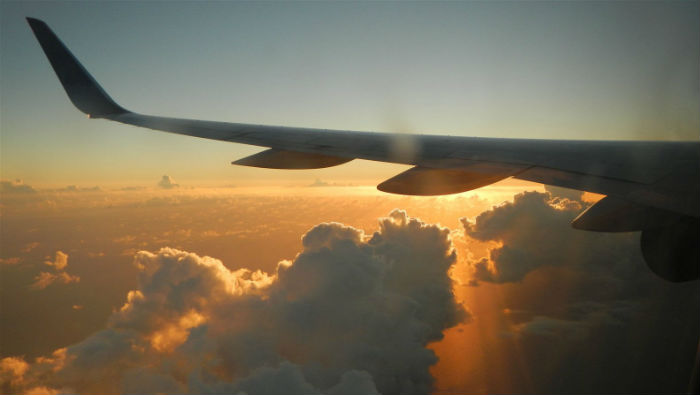
Breaking Travel News interview: Francisco Pérez-Lozao Rüter, president, Hospitality, Amadeus
Traveller expectations have changed over the past four years – the hospitality industry of 2023 is not that of 2019.
These expectations are catalysts for change; today personalisation tops the agenda, with consumers seeking customisable offers when it comes to booking travel.
Flexible and sustainable journeys and the support of modern digital tools to remove the friction from travel are also high on the wish list.
These are the findings of a new report – Catalysts for Change: Building the Hospitality Ecosystem of the Future – released by Amadeus.
Here Breaking Travel News chats to Francisco Pérez-Lozao Rüter, president of Hospitality at Amadeus, about the report and what it means for the future of our industry.
Breaking Travel News: Can you tell me about the Catalysts for Change report – what does it cover and why has Amadeus produced it?
Francisco Pérez-Lozao Rüter: There is real feeling of optimism in the hospitality market as we head into the summer this year – guests are returning in many markets.
However, after three years of upheaval, expectations have evolved – and this is acting as a catalyst for change across our industry.
Travellers now expect personalised, flexible and sustainable journeys, supported by modern digital tools.
This report captures that change, examining how it impacts on the entire ecosystem – in terms of travel sellers, mobility, travel protection and hotels.
In hotels, for example, guests expect preferences to be noted and personalised, ahead of arrival, while check-in must be seamless.
Today, digital experiences are to be welcomed at all stages of the journey as standard.
Travel insurance providers, too, now want to increase personalised offers, with travellers expecting flexibility and ‘cancel for any reason’ policies.
Travellers expect automated, simplified claims processes.
In mobility, Amadeus is working with providers to help them offer tailored and interconnected services to customers amid disruption.
This is an increasingly urgent task, with new players on the market.
Travellers want digital experiences, such as keyless rental, to make the check-in process as frictionless as possible.
Expectations have changed and continue to evolve, and Amadeus is helping our partners to respond across the hospitality ecosystem.

BTN: It is no secret the last three years have been challenging for the hospitality sector – but you mentioned optimism is now returning. How has Amadeus been able to quantify that?
FR: We have seen some very encouraging signs, particularly in terms of hotel occupancy figures.
As of May 6th this year, Amadeus Demand360 data revealed on-the-books global hotel occupancy for June has reached 32 per cent, trending above the 2022 and 2021 figures for the same month and standing just three points behind occupancy levels seen in 2019.
At the same time, leading destinations – including Rome and Paris in Europe, as well as Tokyo, Seoul and Singapore in Asia – are all seeing occupancies for June this year ahead of the same month in 2019, illustrating a robust, and exciting global recovery.
Global hotel average daily rates (ADR) are also above pre-pandemic levels, standing at US$216 for June this year, compared to US$184 in the June of 2019.
At the same time, some 7.5 per cent more travellers booked insurance in 2022 compared to 2019 and the average premium increased by over 37 per cent.
We have also seen a record increase in mobility bookings, up from 6.1 million in 2020, to 12.2 million in 2021 and 15.6 million in 2022.
These are all positive trends and illustrate the positive momentum developing across the hospitality sector.
BTN: How should the industry be responding to this data?
FR: Amadeus delivers the most comprehensive data sets available on the market today.
It plays an important role for the industry in not only allowing them to understand the current and forecasted volume of travel, and when paired with data from data across a hotel’s technology ecosystem, it can also be used to understand the requirements of travellers, exploring their needs as closely as possible to provide tailored services.
For example, hoteliers can confidently make special offers to hotel guests before arrival, anticipating their needs and adding value to a trip.
Data allows hoteliers to offer new levels of personalisation, which we know is a top priority for guests.
Hoteliers can also use data to plan how to run a hotel in the most effective way possible to meet the needs of the increased volume of people travelling.
This is particularly important at a time of higher room rates which can increase expectations and staff shortages which mean that time needs to be carefully planned in order to provide the best experience for guests.

BTN: Mobility, insurance, and hospitality are all cited as ripe inclusion in the ecosystem. Why do they remain unconnected today? What benefits can taking an ecosystem approach deliver?
FR: Industries across the hospitality ecosystem have been developed at different times, with different objectives in mind. As such, there is a great deal of fragmentation, with data held in silos, both across the industry and even within companies.
It is a complex process to integrate them – but one with tremendous rewards. Amadeus is on a mission to do so, in order to give the travel industry access to information and services in the simplest way possible.
The Amadeus Hospitality ecosystem approach will help the industry to respond to the market opportunity as well as changing expectations.
It brings together content and services across hotels, travel sellers, mobility and travel protection.
For travel sellers, the approach will mean a greater ability to upsell and build tailored traveller and guest experiences thereby enhancing revenue opportunities.
For Hospitality, taking an ecosystem approach allows Amadeus to provide insights or services that would otherwise be fragmented, even if adjacent to each other.
The ecosystem provides more options for travellers that can be tailored to their shared preferences so providers can deliver more personalised services and an increasingly frictionless experiences for guests.

BTN: Can you give us an example of the ecosystem in action today?
FR: At the heart of this process is the data ecosystem: we are working to offer industry-wide integrated data access for customers, a system where data insights from across Amadeus can be accessed through a single solution.
For example, the Amadeus’ Business Intelligence suite - which includes Demand360 and Agency360+ - brings together data sets across all booking channels, including the industry’s leading global distribution systems as well as OTAs, direct, and brand.com.
This insight helps hoteliers to understand their channel mix performance as well as how they compare to their competitive set and alternative accommodations.
Information is power – and hoteliers can then leverage this in order to develop optimised strategies for their business, ensuring that they deliver the right offer to the traveller, on the right channel, at the right time.
Additionally, we are working to offer cross-sector intelligence to inform personalised outreach, loyalty programs and customer marketing campaigns.
These are all services that Amadeus offers which are enhanced when multiple sources of data are integrated into combined insight solution.
Amadeus Media Solutions, for example, are able to access flight search data and combine it with GDS and industry data to create highly targeted advertising campaigns to pivot or attract new customers to their destination.
BTN: How will the traveller benefit from the ecosystem once it is realised?
FR: As the ecosystem comes together, the traveller will be able to access more services without friction.
They will be served better by providers, such as hoteliers, who will be able to understand their needs with more insight.
To share some examples: Loyalty programs will become more sophisticated as travellers can agree to enhance their profiles to receive more relevant rewards; and services that were previously adjacent, like travel insurance, will be part of the booking flow and automatically triggered to start a claim when certain conditions, such as delayed flight, have been breached.
We have identified demand for changes across the hospitality sector – and our ecosystem approach will allow us to offer the personalised, digital opportunities travellers increasingly expect.
More Information
Find out more about Amadeus on the official website here.
Chris O’Toole

